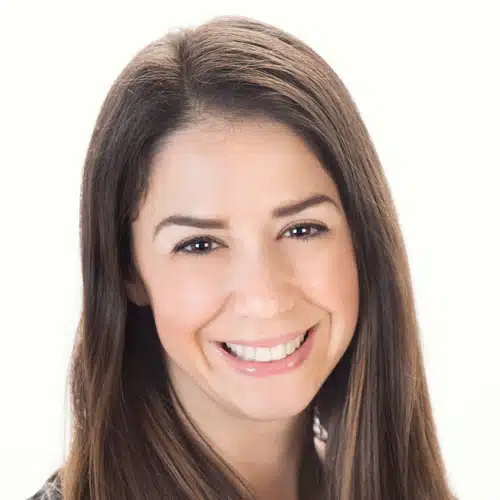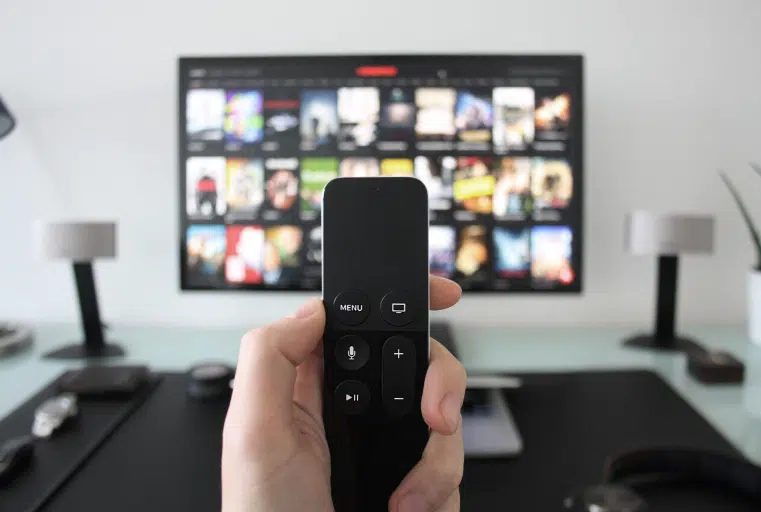“Is TV OK for my child?” “How much TV is OK?” “What shows do you recommend?” I get these questions from parents ALL the time. According to the American Academy of Pediatrics, the recommendation is to prioritize creative, unplugged playtime for infants and toddlers. I think, if you can do this: Great! But, let’s be real. Sometimes parents need a break and TV can be an easy remedy. The AAP goes on to explain that some media can have educational value for children starting at around 18 months of age. They state that it’s critically important that you choose high-quality programming and that parents/caregivers should watch the program with their child, to help children understand what they are seeing.
That being said, in my opinion, I think it is OK for toddlers to watch TV, but a limited amount – about 30 minutes per day. Sometimes kids that age will only sit still and pay attention for 10 minutes at a time. When they stop paying attention to the show turn it off. If you break up 30 minutes into ten-minute blocks that would mean your toddler is watching TV 3-times-a-day! That sounds like a lot of TV watching.
What type of shows do you recommend?
I recommend shows that are educational in some way. The show should teach feelings, emotions, morals, have songs in it, or some sort of simple problem that the characters work through together. I like Peppa Pig, Daniel Tiger, Super Why, Pinkalicious, Sesame Street, Little Einstein, and Dora the Explorer. For kids around 1-year I recommend Elmo’s World, Mother Goose Club, and songs by Bounce Patrol. If your child likes a show that is not on my list, that is not wrong I would just make sure the show has a good message and is wholesome.
Interact while you watch.
Try to watch shows together. Watching shows together can be fun and once the show is over talk about what the show was about, what feelings and emotions were felt and why, and what happened. You can recap the show out loud and then ask simple questions about the show. For example, “Why was Daniel feeling sad when his toy was taken?” Then, answer the question, “Daniel was feeling sad because he was playing with that toy and then his friend took it. His friend needs to ask if he can have a turn. May I please play with the toy when you are done?” Even if your child is not talking yet or isn’t talking that much, this is a great way to practice your speech and language strategies. Talk out loud, repeat, speak expressively, and model. As a carryover activity, pretend play is great. Play with toy animals or toys and pretend something that happened in the show you watched.
“What am I supposed to do with my child all day if we are not watching TV?”
Another question I get often is, “what am I supposed to do with my child all day if we are not watching TV?” There are so many things you can do instead of watching TV. You could play, go on a walk, read stories, run errands, go to the park, go to a play-place, a class, create an art project, cook a simple dish together, create a “Busy Bin” for your child to play with by themselves, and the list goes on and on.It is OK for even your youngest child to have a break where they aren’t being entertained by you or the TV, where they just have to figure it out for themselves. Who knows, navigating boredom may even result in some new kinds of communication. Before resorting to watching TV for the morning or the afternoon try to do an “unplugged” activity first. There are so many things to do during the day and you should never run out. Also, don’t be afraid to repeat activities! Need some new ideas? Pinterest!

Katie Dimond
Katie Dimond is the founder and director of Dimond Therapy and Tutoring, offering therapy services to kids from birth through high school at Bubbles Academy and in the Chicago area. Katie, mom of 2, is a dedicated, experienced, and licensed speech and language pathologist. She has been practicing since 2008 and has extensive experience treating children with speech and language delays and disorders. She received her Bachelor’s degree in Speech and hearing Science at the University of Illinois in 2006 and received her Master’s degree in Communication Science and Disorders from Saint Louis University in 2008. Katie is a certified speech and language pathologist in the state of Illinois, a member of the American Speech-Language and Hearing Association, and owns Crossroads Speech Therapy in Chicago.
